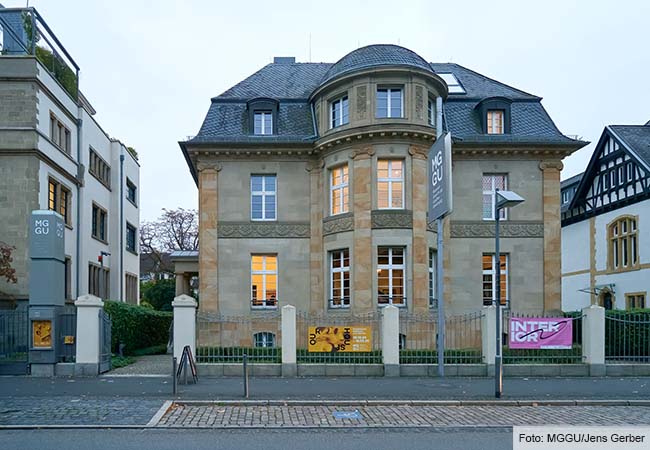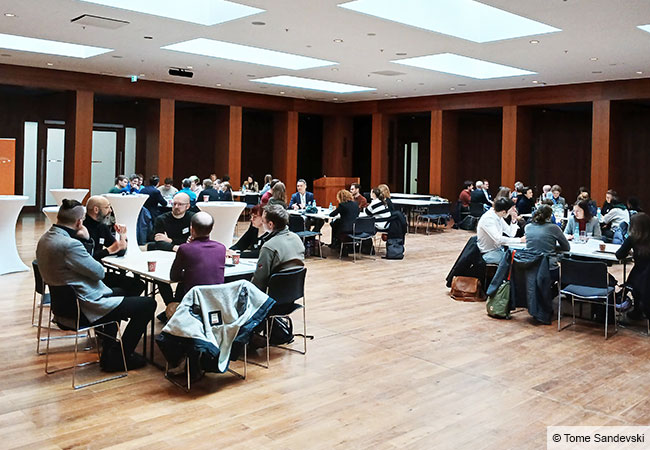Almost twenty years after deciphering the human genome, our understanding of human disease is still far from complete. One of the most powerful and versatile tools to better understand biology and disease-relevant processes is the use of well-characterized small chemical modulators of protein function. The new EUbOPEN consortium aims to develop high quality chemical tool compounds for 1,000 proteins (one third of the druggable proteins in the human body). It will enable unencumbered access to these research tools, thereby empowering academia and industry alike to explore disease biology and unlock the discovery of new drug targets and treatments.
The EUbOPEN consortium comprises 22 different partner organizations, including universities, research institutes, European Federation of Pharmaceutical Industries and Associations (EFPIA) members, and one small and medium-sized enterprise (SME). Goethe University Frankfurt and Boehringer Ingelheim are jointly leading the EUbOPEN consortium. Other partner organizations are Bayer AG, Diamond Light Source, EMBL-EBI, ETH Zürich, Fraunhofer IME, Georg-Speyer-Haus, Karolinska Institutet, Leiden University Medical Center, McGill University, Ontario Institute for Cancer Research, Pfizer, Royal Institute of Technology, Servier, the Structural Genomics Consortium, Takeda, University of Dundee, University of North Carolina, University of Oxford, and University of Toronto.
To interfere with the function of a protein in any given cell type, scientists need small chemical tools that affect the studied protein as specifically as possible, thereby avoiding unintended effects on other proteins. Therefore, there is an urgent need for selective and well-characterized chemical modulators for basic and applied research. Ideally, such tools would be available for every human protein. Moreover, these chemical modulators should be available to all researchers without restrictions on use, thus providing scientists with tools to better understand understudied proteins, thereby discovering possible links to disease.
The generation and dissemination of such high-quality and well-characterized research tools for a substantial fraction of the druggable human genome are the major goals of the newly formed public-private partnership “Enabling and Unlocking biology in the OPEN” (EUbOPEN). This large consortium was launched on 1 May 2020, with a total budget of 65.8 million euros covered by a grant from the Innovative Medicines Initiative (IMI) and cash/in-kind contributions from EFPIA companies and IMI Associated Partners and contributions from partners outside of Europe.
‘EUbOPEN will provide the wider academic community with unencumbered access to the highest quality pharmacological tool compounds for a large number of novel targets, and seed a massive community target prioritization and deconvolution effort. The expected impact should be transformative’, says Project Leader Adrian J. Carter, Boehringer Ingelheim.
‘By the end of the project, we will have created the largest and most deeply characterised collection of chemical modulators of protein function that is openly available. The chemical tool sets and associated data will be a tremendous resource for academic science leading to the discovery of new biology and of novel disease modulating targets for the development of new medicines’, adds Coordinator Stefan Knapp, Goethe University Frankfurt.
EUbOPEN will develop these compounds using new technologies and test them in well-characterized, disease-relevant human tissue assays in the areas of immunology, oncology and neuroscience. The project outputs, including chemogenomic library sets, chemical probes, assay protocols and associated research data will be made openly available to the research community without restriction.
The EUbOPEN project will form the foundation for future global efforts to generate chemical modulators for the entire druggable proteome and the developed new technologies will significantly shorten the lead optimization processes. The sustainability of the resources the project will be ensured through many partnerships for example with chemical vendors and biotech companies as well as online database providers.
For further details, please visit: https://www.eubopen.org/
Innovative Medicines Initiative (IMI)
The IMI is Europe’s largest public-private initiative aiming to speed up the development of better and safer medicines for patients. IMI supports collaborative research projects and builds networks of industrial and academic experts in order to boost pharmaceutical innovation in Europe. IMI is a joint undertaking between the European Union and the European Federation of Pharmaceutical Industries and Associations (EFPIA).
For further details please visit: http://imi.europa.eu/
Source: press release from 8 June 2020







